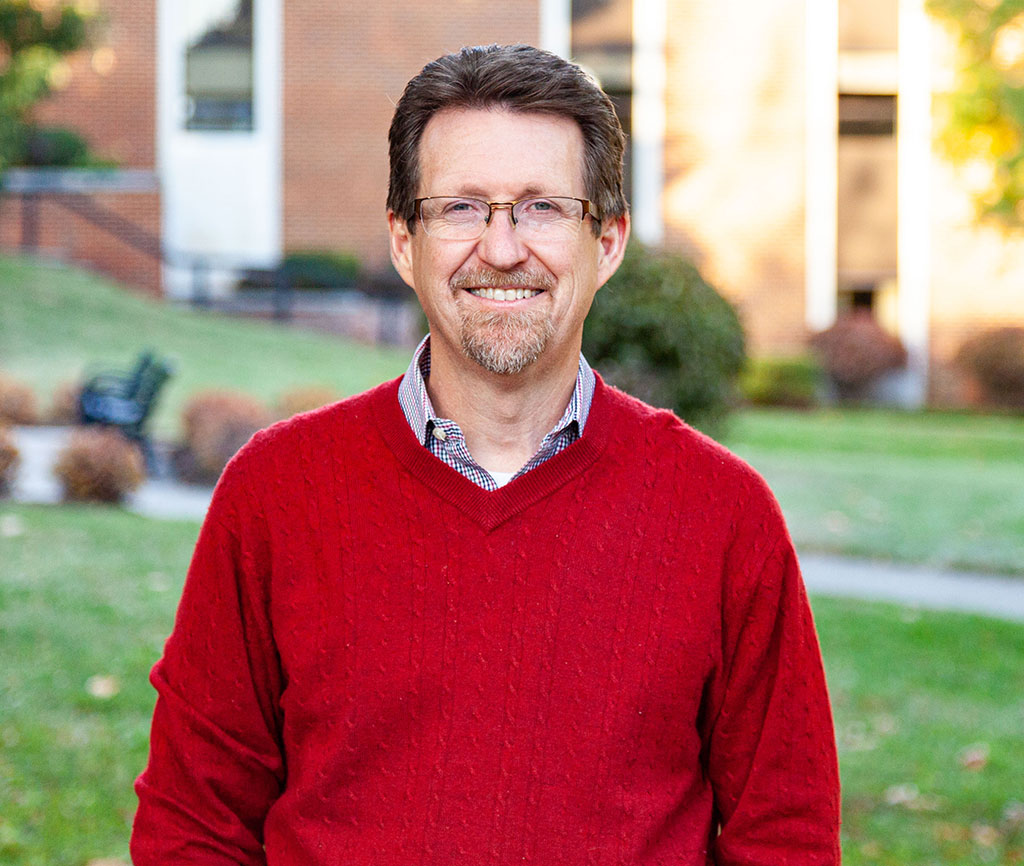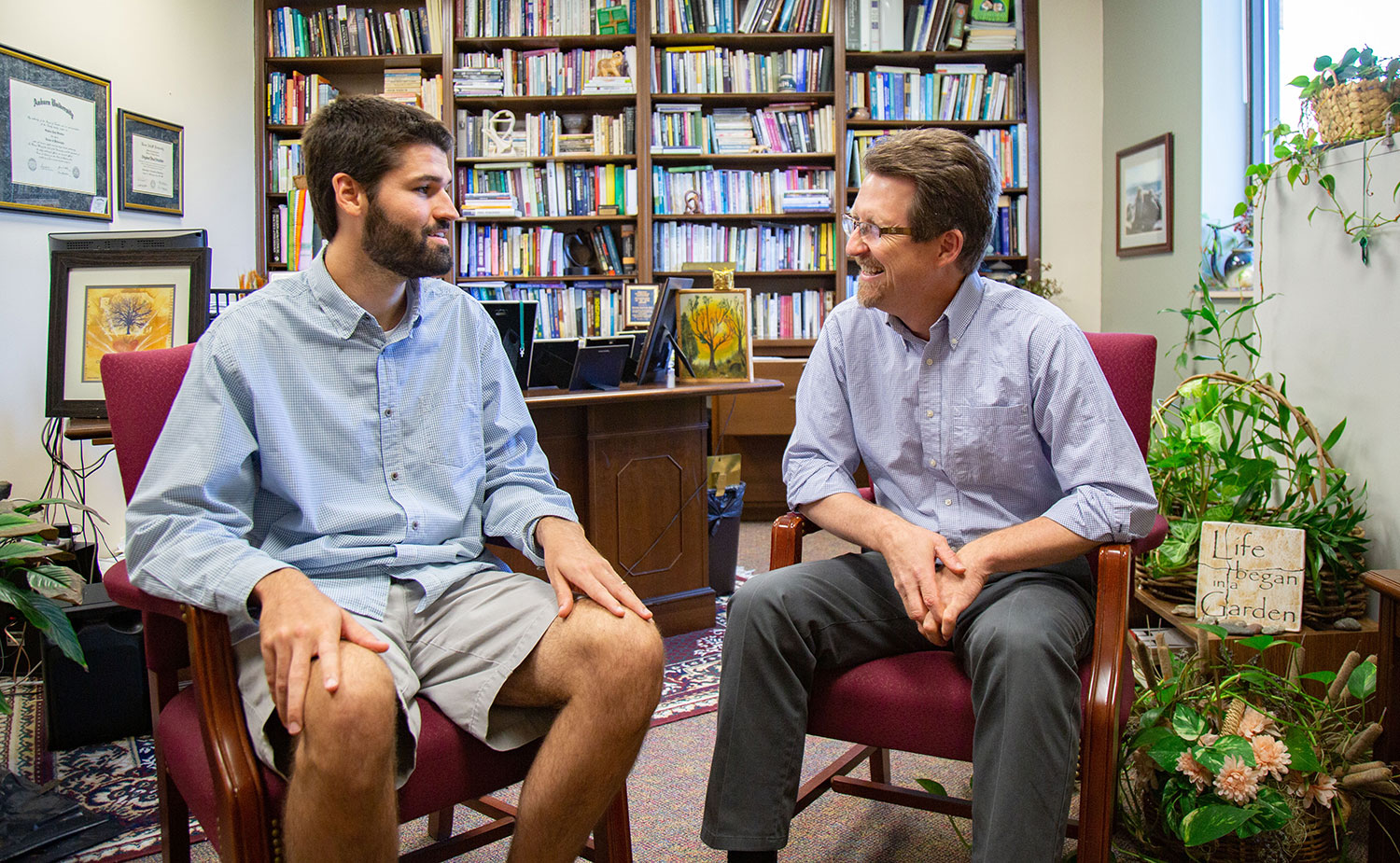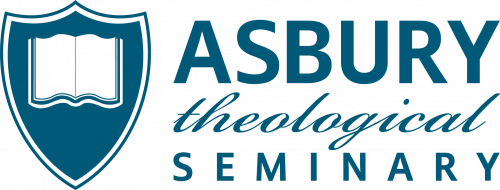Dr. Steve Stratton
Ph.D., Auburn University, 1991.
Last updated: October 26, 2020

In the midst of a challenging academic life, Dr. Steve Stratton, Professor of Counseling and Pastoral Care, teaches students to become people of practices for a lifetime of sustainable ministry. As part of the Formation and Student Committee, he and his colleagues are developing a curricular strategy that invites students to engage in practices in five specific areas, including spiritual, emotional/relational, physical, vocational, and academic/intellectual.
“If you come to Asbury Seminary and you just acquire new knowledge, you really have not had a complete ‘Asbury experience,’” Steve said. “Romans 12:2 challenges us not to let culture press us into its mold. As a formational community, we want students to see their seminary years as a time to do counter-cultural, ‘whole person’ training. We want graduates who stand out from general culture in an attractive way. We want graduates, no matter what their program of study, to be persons who model a Spirit-empowered life and can invite others into the same kind of experience.”
Throughout the counter-cultural process, students complete a Rule of Life, built around those five specific areas. Their Rules are revised on two later occasions, so that they maintain an intentional and up-to-date plan for growth in health and holiness. Students are asked to engage in formational practices, such as prayer, journaling, Scripture reading, acts of service, counseling or spiritual direction, and even exercise. This classic Wesleyan approach creates space for God to provide the transformative power of His grace, even when results aren’t immediately evident.
“I’ve got to believe by faith that God is doing something in the space I’m giving Him through prayer, Scripture reading, counseling, exercise, etc.” Steve said.

Steve’s focus on formation at Asbury Seminary flows into his work as a professor in counseling and pastoral care. He reports that counseling requires a continual evaluation of self, as counselors must be good stewards of their own experience to effectively work with others. Toward this departmental vision, counseling students are practicing centering prayer with faculty. Initially, most students are amazed at how distracted they are as they try to sit in God’s presence. But in time, they realize how counter-cultural this prayer practice actually is. They practice how to make space for God in each moment, instead of the commonplace obsession with multi-taskjng at a breakneck speed of life.
“Centering prayer and contemplative meditation show empirical efficacy for counselor growth and development, making us better for others,” Steve said. “The place we see the most growth is our ability to be with others in an empathic way. I’ve heard people complain that such practices are too self-centered, but in reality, they grow the parts of the brain that help us be relationally attuned to others.”
These and similar spiritual practices help to integrate students vocationally, physically, relationally and emotionally so that counseling and faith come out of them in a way that is relevant to whatever situation in which they’re working.
“The reason I like teaching at Asbury Seminary is that I don’t have to hide how counseling is very much about faith,” he said. “Even when we may work in locations where we are not explicitly able to reference faith, I see Christian counseling as a pursuit of what’s truthful for human beings, providing directions for people to become more truthful in the way they live and relate.”
Dr. Stratton has been teaching full-time at Asbury Seminary since 2006. He was an affiliate faculty member in the late 90s and early 2000s while directing the Center for Counseling at Asbury University. For more than a decade, he and colleagues Dr. Mark A. Yarhouse, Dr. Janet B. Dean and Dr. Mike Lastoria have been researching the experience of sexual minorities at faith-based colleges and universities. Their research resulted in the 2018 InterVarsity Press book, “Listening to Sexual Minorities: A Study of Faith and Sexual Identity on Christ College Campuses.” Through a grant from the Louisville Institute, they are currently working on another longitudinal study investigating the experience of students navigating gender identity and faith at Christian colleges and universities.

Prepare for the Call
Learn more about how Asbury Seminary can help prepare you for your call. Fill out the form below to get started!





